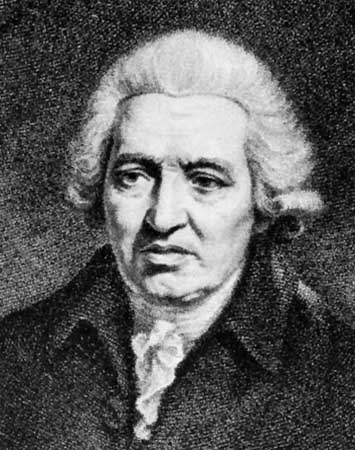Charles Macklin was born Cathal MacLochlainn into an Irish-speaking family on the Inishowen Peninsula in Co. Donegal in 1699. As a young man, he anglicised his name, converted to Protestantism, adopted an English accent, and moved to London to become an actor. He became one of the most important actors in the history of the English stage, and his naturalistic and multi-layered portrayal of Shylock was groundbreaking and, indeed, legendary.
Macklin was also a playwright. He wrote successful "English" comedies, such as Love à la Mode (1759), The School for Husbands (1761), and The Man of the World (1781). However, he is best known in Ireland for a play he wrote in which he reflects on his Irish background, The True-Born Irishman (1763); in this play, which has often been revived in Ireland and which was adapted by Brian Friel as The London Vertigo (1990), Macklin promotes the dignity of the Gaelic Irish and casts a satirical eye on the Irish Ascendancy and the English. (Perhaps an act of atonement for his “selling out” of his Gaelic cultural inheritance as a young man?) The play was a huge success when it premiered in Dublin in 1763 but flopped when it was produced as The Fine Irish Lady in London in 1767.
Plays
Find out more
For more on this playwright from an Irish Studies perspective, see the reflections on Macklin in Helen M. Burke's study, Riotous Performances: The Struggle for Hegemony in the Irish Theater, 1712-1784 and in Joep Leerssen's study, Mere Irish and Fíor-Ghael: Studies in the Idea of Irish Nationality, its Development and Literary Expression prior to the Nineteenth Century (1986, rev. 1996).

